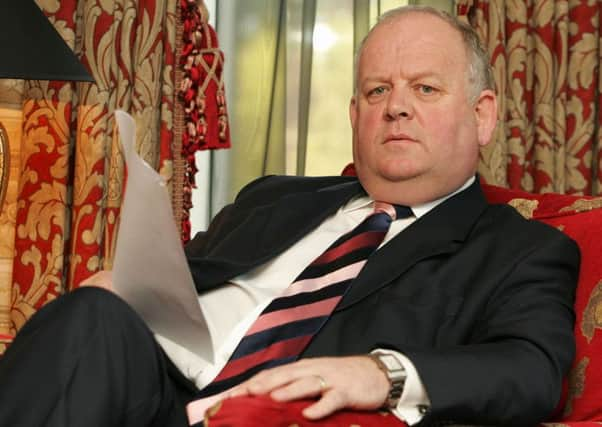RUC veteran: It's no dreadful thing that we've lost two-thirds of police stations


Former DUP MLA Jimmy Spratt was speaking after the News Letter revealed figures detailing on a town-by-town and village-by-village basis how many police stations have closed in the past two decades.
Mr Spratt joined the RUC in 1972, and remained a police constable until 2002.
Advertisement
Hide AdAdvertisement
Hide AdDuring that time he was vice-chairman of the Police Federation for about 10 years from the early 1990s, before serving a short stint as its president.
He said during the Troubles police stations “were used to go back to for breaks – they were a safe haven, whereas police officers now can probably go to outside sources to get food”.
He said both the administrative functions of small police stations, and the holding of prisoners, have now been centralised in a small handful of locations.
“I don’t think it’s a dreadful thing that police stations have closed down,” he said.
Advertisement
Hide AdAdvertisement
Hide Ad“Why have people tied up in 100-odd police stations when less will do?
“I’ve often said to people a police car, a police van, is now basically a mobile police station.”
He gave an example of the suite of technology mobile officers now possess.
“ I think as a vehicle passes they can get details of whether that vehicle is insured, taxed – all the rest of it,” he said.
Advertisement
Hide AdAdvertisement
Hide Ad“As I said during my 30 year service, policing changes. Even the very fact police now wear; they’re now in stuff we wouldn’t be allowed to wear during my service.
“It was tunics and shirts and ties, whereas police officers are in much more comfortable, workable gear now.
“Some people don’t like it – but policing evolves.”
Asked about the perception that a police station may reassure the surrounding community, he said: “It’s not the police station that creates community policing.
“The public want to see their police officers they get to know out on the ground.
“I don’t think they’re particularly concerned about police stations as long as they see police on the beat.”